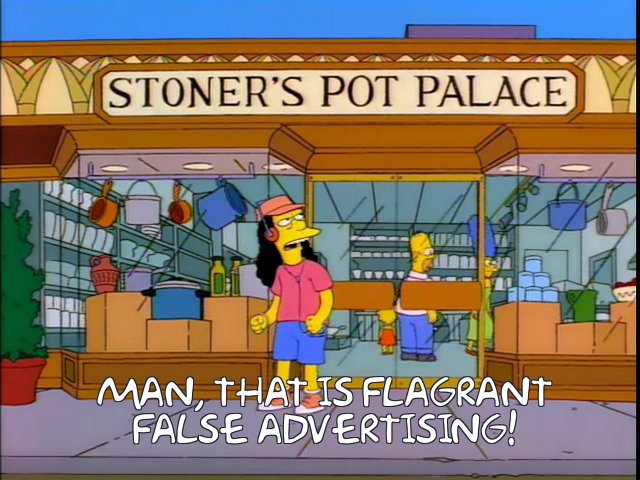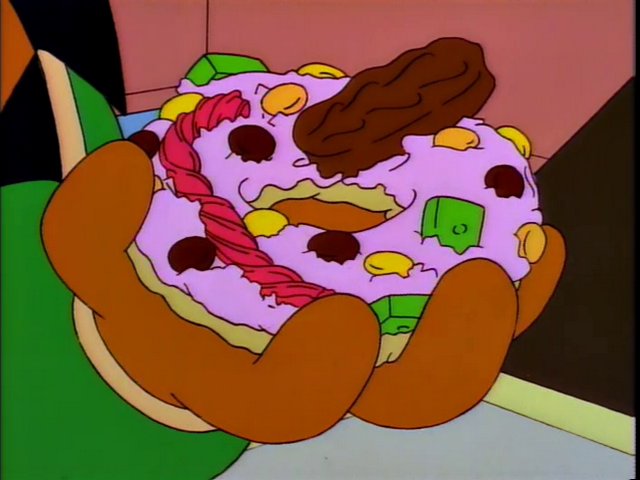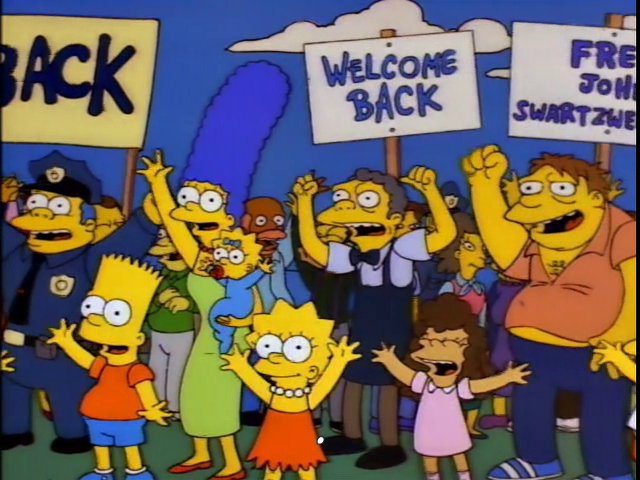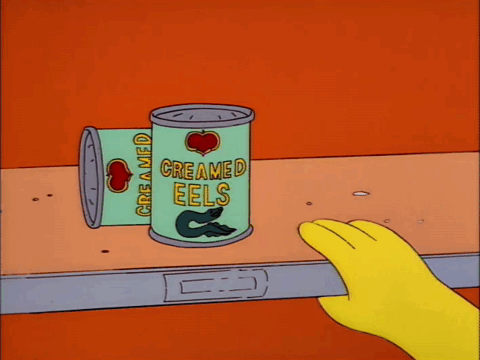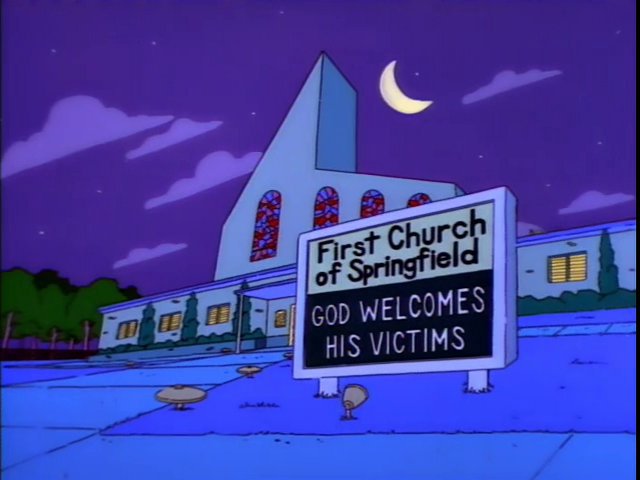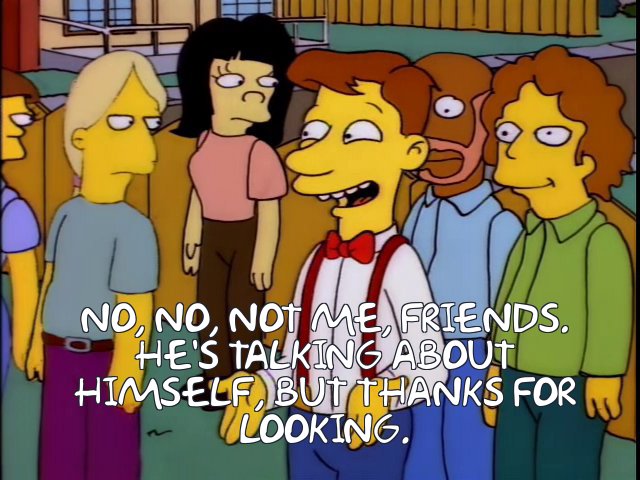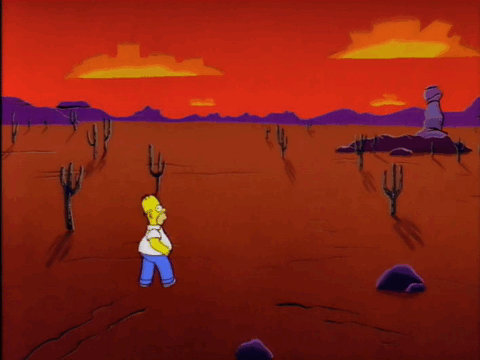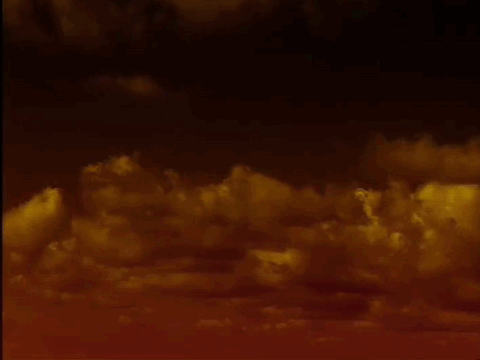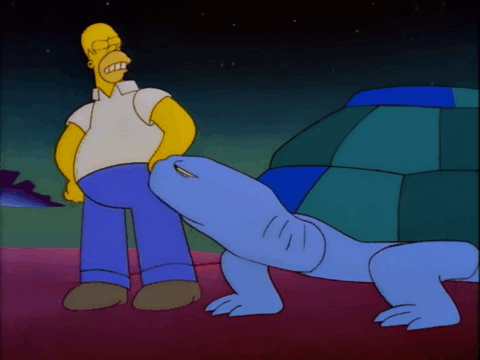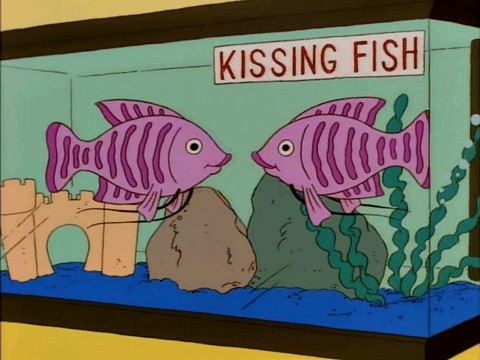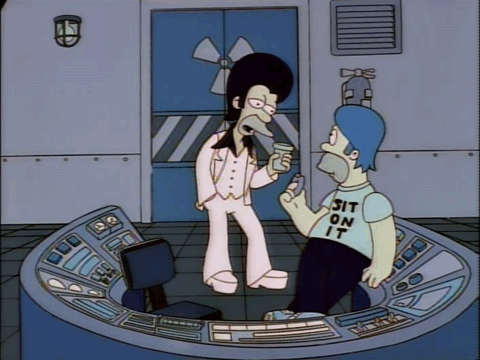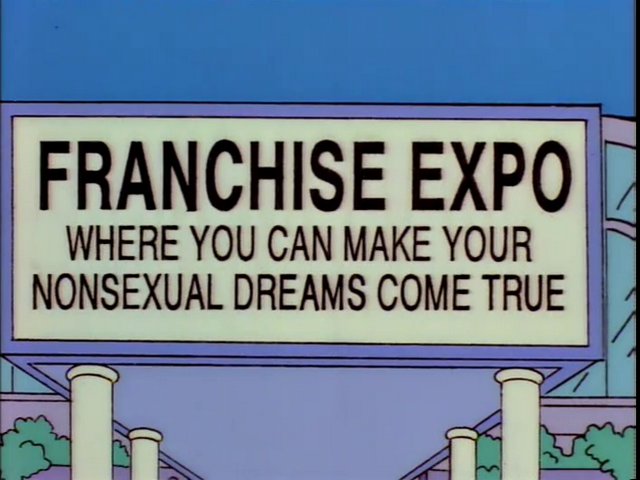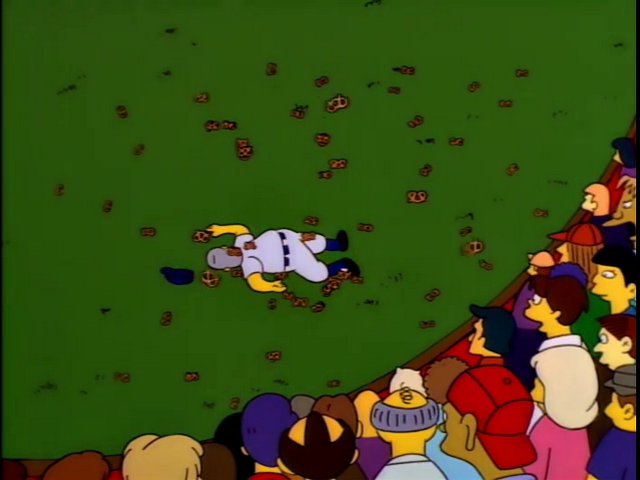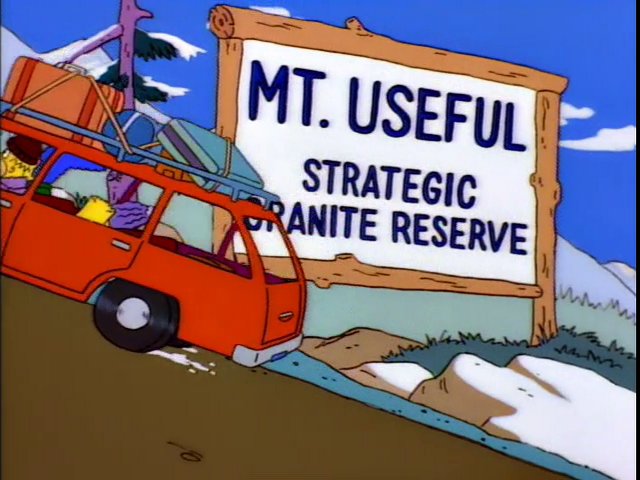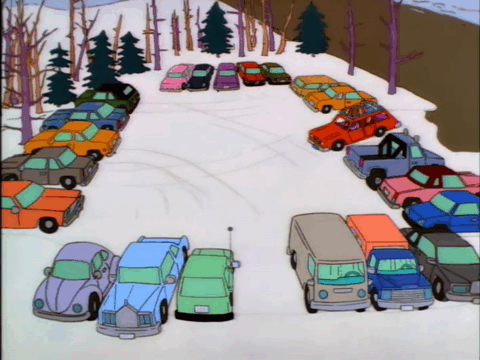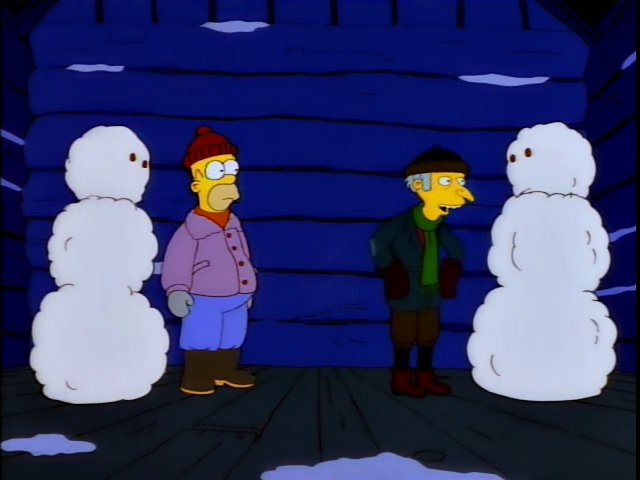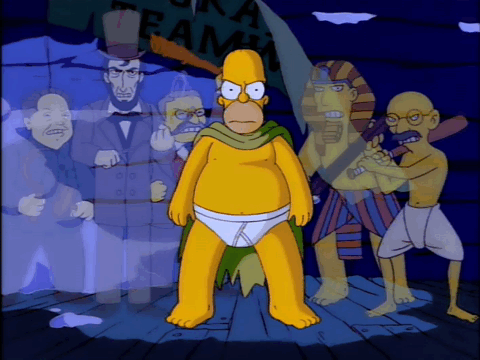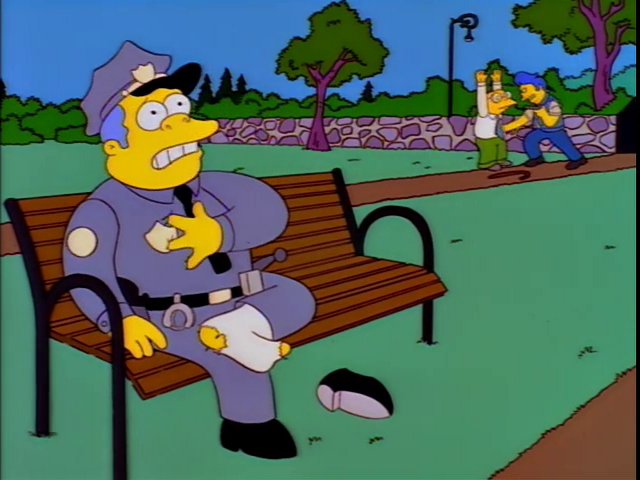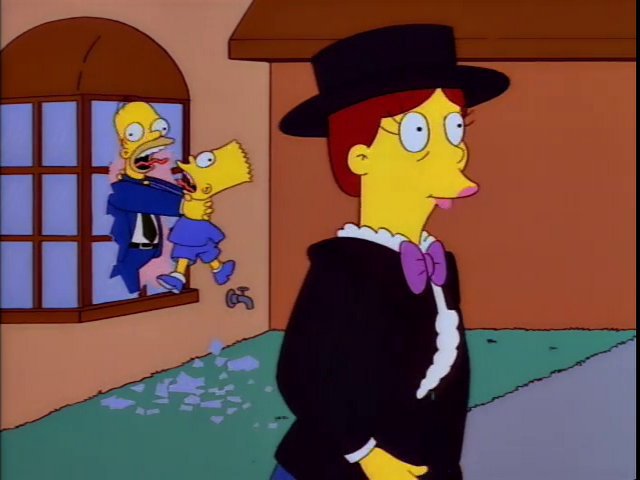Mountain of Madness
The COVID era is a time unlike any I've ever lived in. We are closing on it being the one year anniversary of my own province realizing how seriously to take this and we've been relatively fortunate, spending the majority of the year in yellow alert, allowing me to see friends and family. Some people have not been so fortunate. And even my parents have had to be closer than usual, which is a lot. My father has mobility issues so my mom already has to spend a lot of time with him to give him the necessary help he needs and that sometimes puts tension in their relationship but I imagine with my mother having fewer opportunities to get out to do things beyond walking has made things a little uncomfortable. And I've definitely heard that the closeness has put a lot of tension in households that wasn't there before. But at least they are people they know...
In this episode, on a boring work day, Burns decides to have a fire drill to test workplace efficiency, only to find the entire plant panicking and doing a very poor job leaving in an orderly and timely fashion. Aghast, Burns makes decisive action and insist on a corporate retreat in the mountains to instill a sense of teamwork in the employees. The plant's staff is split into teams of two who must work together to find a cabin. During the drawing of the pairings, Homer gets teamed with Burns and is jazzed, as he's definitely the one team who can't fail, especially since the losing team will be fired. Sure enough, Burns and Homer cheat and get to the cabin first. And the retreat seems to work as Burns and Homer begin getting along swimmingly, relaxing while waiting for the other teams. However, an avalanche buries the cabin, leaving them trapped until piles of snow. Homer and Burns try to work together but soon cabin fever sets in and the two slowly begin turning on each other, Eventually it ends in a fierce fight between the two. However, the two luck out when Burns smashes a propane tank that ends up propelling the house like a rocket to another part of the mountain. Despite everything, Burns declares the retreat a success and Homer and Burns decide, good-naturedly, that they never want to see each other again.
Mountain of Madness basically tells us a tale we've seen before: two people in extreme proximity find their civil facades fading away while in a stressful situation. But its also going after a target I feel was very common in the era this came out: the corporate retreat. I feel like it must have been something that was happening more and more in the 90s and that it was sort of a waste of time most of the time. It feels so far removed from the era of today when many people have realized they can just work from home. There's always going to be other wastes of time and distractions. After all, constant useless meetings will always be a thing, now you can just do them from home. But I feel like the corporate retreat was a specific phenomena that was a target for mockery due to the fact it was trying to create some sort of positive corporate culture but came across as more of an annoyance.
In this episode, its about how people respond to a crisis, particularly Homer and Burns. Both are people who can be very selfish (certainly Burns more than Homer) and prone to delusions, the kind of people you don't want in an emergency. The two actually work together well... when they have nothing but conveniences, it is easy for them to be civil. But despite attempts to remain that way, they slowly turn on each other out of paranoia and the two see the ugliness within themselves. They begin trying to forge teamwork with an easy "challenge" but when it isn't manufactured and is real, we see Burns is just like any employee of his: panicky and dangerous.
But mostly, this episode is an excuse for Homer and Burns to bounce off of each other. We rarely get to see them be chummy (at least this early in the show) but Shearer and Castelleneta have worked together so long, its no surprise they themselves have some great teamwork. I also like the choice to have cheery sitcom music (more than usual) in the first half, and having a tone of psychological thriller in the second. Its also an episode I feel like the last couple is a bit shallow but I think this one make up for it but being consistently VERY funny throughout and is one of the most quotable of the season. I wouldn't put it in the top tier but there are some episodes I feel can be called "quote mines" and this one has a very rich vein.
Jokes I missed before:
Other great jokes:
Get ready for a bonanza.
So much greatness in this clip. The assumption the popcorn is done, Lenny wanting his hot cocoa to hurry up (his dumb priorities are very me), Homer locking everyone else in and saying he thinks he "won".
"Your ideas intrigue me and I wish to subscribe to your newsletter."
"I'm afraid that's no longer true, ma'am. Budget comebacks have forced us to eliminate anything the least big entertaining...
...
...
Well, see ya."
"The routes are treacherous, so use your maps."
"Uh, I lost my map."
"You haven't been issued a map yet."
Also me.
"I've placed all your names into this hat."
*Homer, very impressed*
"Thank you."
"We'll take the chairlift, it will give us an eagle eye view of the area directly beneath the chairlift."
This line works much better than it should thanks to the line read.
"And this doorknob, when properly turned, will give us access to the cabin."
I love that Lisa just keeps finding injured animals.
"Oh, yes, sitting. The great leveller. From the mightiest pharaoh to the lowliest peasant, who doesn't enjoy a good sit."
"Hey, did you hear something?"
"No."
"Did I?"
"I don't know."
I love Carl's disdain so much that I've often given this line read of "I don't know" when I feel similarly.
"Hey, maybe there is no cabin. Maybe its one of those metaphorical things."
"Oh, yeah, yeah, like maybe the cabin is a place inside each of us created by our good will and teamwork."
"Ooh... Aw, they said there'd be sandwiches."
I love that this is where they decide the metaphor ends.
"Aw, 206 bones, 50 miles of small intestine, full pouting lips. This is less a snow man than a god."
"Right here sir, right behind the drunk."
"Well, tell you one thing, they didn't come for the mountain music festival. March 14-18."
"Oh lord, protect this rocket house and all who dwell within the rocket house."
"Something's wrong with its brakes!"
Other notes:
Oh, its a Swartzwelder episode. No wonder its so quotable. I also wonder if his libertarian leanings informed the idea "well, of course when push comes to shove, people are animals who will turn on each other."
The Jumble has come up again. Burns feels he needs to cheat at it.
The choice to make the chief ranger sound like Adam West is PERFECT.
